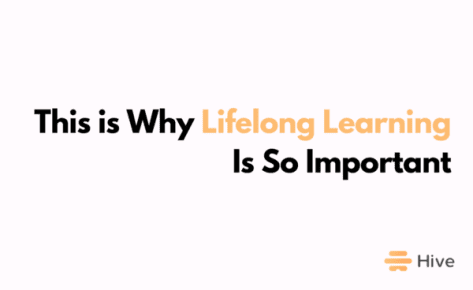Life is finite. Learning is for life.
“As long as you live, keep learning how to live,” Seneca, a Roman philosopher, statesman, and playwright said.
He believed seeking knowledge and wisdom were key to living a fulfilling and meaningful existence.
Lifelong learning, the process of acquiring knowledge and skills throughout one’s life, is a mindset that emphasises the importance of continuous learning and growing, not just in our formal education but also in our personal and professional lives.
It can take many forms: reading, listening to a great podcast, MBA preparation, watching reality-altering videos, taking courses, attending meaningful events, or simply experimenting with new things.
The important thing is to be open to learning and never to stop growing.
The beauty of lifelong learning is that it’s an infinite game you can never lose. The more you learn, the more you grow, and the more you grow, the more you learn.
It’s a never-ending cycle of growth and development that can lead to a more fulfilling and satisfying life.
It is an infinite game you can’t lose because you will stack wisdom for life. From acquiring new skills to staying updated with emerging knowledge, and trends, lifelong learning is a continuous process that keeps you ahead of the game of life.
It helps you adapt to new situations, challenges, and opportunities and enables you to make better decisions in all aspects of your life.
“The purpose of learning is growth, and our minds, unlike our bodies, can continue growing as we continue to live, author Mortimer Adler said.
In a finite game, a definite outcome means an end in sight.
In contrast, an infinite game has no specific endpoint or winner, and the goal is to keep playing and continuing the game.
In the lifelong learning game, there is no losing; you will keep winning for life — the focus is on the learning journey itself.
You become a self-directed learner for life.
Self-directed learners take responsibility for their learning, setting goals, and developing strategies for acquiring knowledge and skills.
They proactively seek learning opportunities rather than waiting for someone else to provide them.
Self-directed learners tend to be more adaptable and resilient in the face of change. They can quickly acquire new skills and knowledge to meet the demands of their changing environment.
This adaptability is particularly important in today’s rapidly changing world, where new technologies and industries are emerging at an unprecedented rate.
It requires a growth mindset
“Self-education is, I firmly believe, the only kind of education there is,” writer and professor Isaac Asimov said.
The good news is it’s not constrained by age, education level, or previous experiences. Anyone can continue learning and growing, regardless of background or circumstances.
But it requires a growth mindset.
That means you must be willing to embrace challenges, persevere through difficulties, and view failure as an opportunity for learning and improvement.
It also means being open to new ideas and embracing a curiosity to learn.
It offers limitless opportunities for growth and personal development and helps you thrive in an ever-changing world.
Lifelong learning can be a daunting experience.
But it is also an exciting one.
That means that you have the opportunity to grow and change your life for the better, no matter how old you are or what your circumstances are.
If you’re looking to improve your life and career, lifelong learning is a great place to start.
The only limitation is a fixed mindset.
There is no one right way to do it. The most important thing is to find what works for you and to never stop learning.
It’s the beginning of conscious living
“A commitment to lifelong learning is a natural expression of the practice of living consciously,” psychotherapist and writer Nathaniel Branden said.
When we live consciously, we actively engage with our experiences, thoughts, and emotions rather than just going through the motions.
When you commit to lifelong learning, you are choosing to approach your life with curiosity, openness, and a desire to learn and grow.
You seek new knowledge, skills, and experiences that can enrich your life and help you become a better, more fulfilled person.
By doing so, you are living consciously because you are aware of your potential for growth and pursue meaningful knowledge to fulfill it.
We are also aware of the world around us and how our actions impact others. This awareness can lead us to a desire to learn more about ourselves and the world around us.
The practice of living consciously involves being aware and intentional in how you approach your life. It means
A commitment to lifelong learning is a natural expression of this practice because it involves being intentional about your personal growth and development.
Here’s how to start your infinite lifelong learning journey.
- Start with a goal. What do you want to achieve through lifelong learning? Once you know what you want to achieve, you can start planning how to accumulate knowledge one topic at a time.
- Find a learning style that works for you. Some people learn best by reading, while others learn best by listening or doing. Experiment with different learning methods to find what works best for you.
- Make time for learning. Lifelong learning doesn’t have to be formal or expensive. You can learn new things by reading books, watching videos, taking online courses, or simply talking to other people.
- Be patient: remember, it’s an infinite process. Don’t get discouraged if you don’t see results immediately. Just keep learning and growing, and you will eventually stack knowledge for life.
When you commit to lifelong learning, you approach your life with curiosity, openness, and a desire to learn and grow.
Lifelong learning is an investment in yourself. It’s a way to stay ahead of the curve, improve your life, and make a difference.
